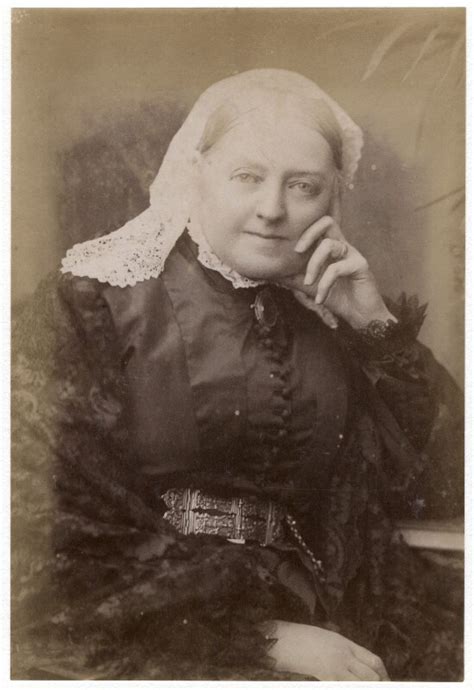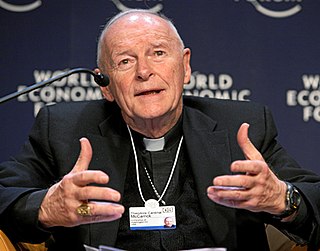A Quote by Dinah Maria Murlock Craik
Happiness is not an end - it is only a means, and adjunct, a consequence. The Omnipotent Himself could never be supposed by any, save those who out of their own human selfishness construct the attributes of Divinity, to be absorbed throughout eternity in the contemplation of His own ineffable bliss, were it not identical with His ineffable goodness and love.
Related Quotes
Many Christians still at bottom look upon God as one of the most selfish, self-absorbed Beings in the universe, far more selfish than they could think it right to be themselves, -intent only upon His own honor and glory, looking out continually that His own rights are never trampled on; and so absorbed in thoughts of Himself and of His own righteousness, as to have no love or pity to spare for the poor sinners who have offended Him.
The name that no human research can discover-- But THE CAT HIMSELF KNOWS, and will never confess. When you notice a cat in profound meditation, The reason, I tell you, is always the same: His mind is engaged in a rapt contemplation Of the thought, of the thought, of the thought of his name: His ineffable effable Effanineffable Deep and inscrutable singular Name.
Man—every man—is an end in himself, not a means to the ends of others; he must live for his own sake, neither sacrificing himself to others nor sacrificing others to himself; he must work for his rational self-interest, with the achievement of his own happiness as the highest moral purpose of his life.
I know not if this earth on which I stand is the core of the universe or if it is but a speck of dust lost in eternity. I know not and I care not. For I know what happiness is possible to me on earth. And my happiness needs no higher aim to vindicate it. My happiness is not the means to any end. It is the end. It is its own goal. It is its own purpose.
If it were not for the Eucharist, if it were not for this marvelous manifestation of God's love, if it were not for this opportunity to place ourselves in the very real presence of God, if it were not for the sacrament that reminds us of His love, His suffering and His triumph, which indeed perpetuates for us His saving sacrifice on the cross, I am sure that I could never face the challenges of my life, my own weakness and sinfulness and my own need to reach out to the Living God.
The only proper, moral purpose of a government is to protect man's rights, which means: to protect him from physical violence - to protect his right to his own life, to his own liberty, to his own property and to the pursuit of his own happiness. Without property rights, no other rights are possible.
God was happy without humans before they were made; he would have continued happy had he simply destroyed them after they had sinned; but as it is he has set his love upon particular sinners, and this means that, by his own free voluntary choice, he will not know perfect and unmixed happiness again till he has brought every one of them to heaven. He has in effect resolved that henceforth for all eternity his happiness shall be conditional upon ours.
There are three kinds of love;
unselfish, mutual, and selfish.
The unselfish love is of the highest kind;
The lover only minds the welfare of the beloved and does not care for his own sufferings.
In mutual love the lover not only wants the happiness of his beloved;
but has an eye towards his own happiness also. It is middling.
The selfish love is the lowest. It only looks towards its own happiness,
no matter whether the beloved suffers weal or woe.
I understood how a man who has nothing left in this world may still know bliss, be it only for a brief moment, in the contemplation of his beloved. In a position of utter desolation, when a man cannot express himself in positive action, when his only achievement may consist in enduring his sufferings in the right way - an honorable way - in such a position man can, through loving contemplation of the image he carries of his beloved, achieve fulfillment.
God shows us in Himself, strange as it may seem, not only authoritative perfection, but even the perfection of obedience--an obedience to His own laws; and in the cumbrous movement of those unwieldiest of his creatures we are reminded, even in His divine essence, of that attribute of uprightness in the human creature "that sweareth to his own hurt and changeth not.


































